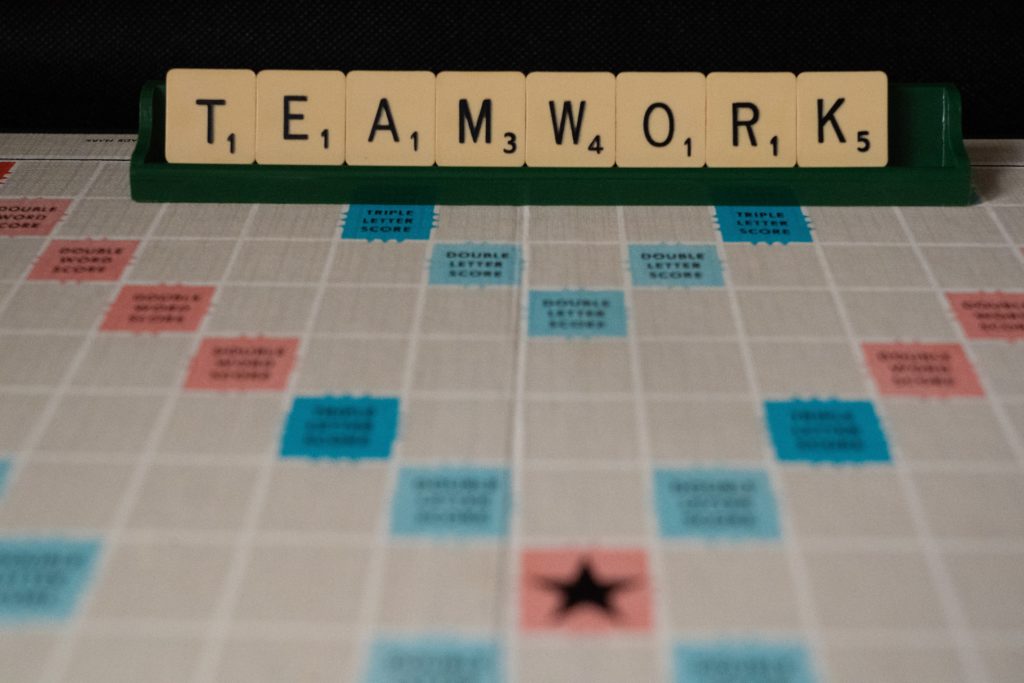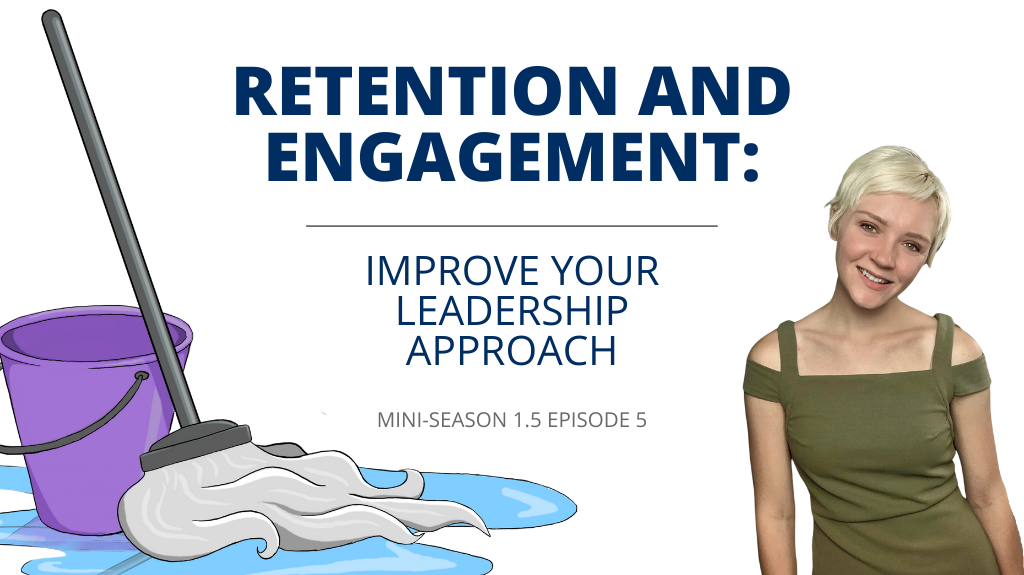It’s what we focus so much of our time and effort to develop and while it’s not the only solution to increase retention and engagement of employees, there’s no doubt that it’s a heavy hitter. So what is the right approach to creating and maintaining good leadership? We’ve outlined a few suggestions to get you set on the right path to impactful success.
Click Here To Subscribe On Your Favorite Platform!
Podcast Transcription

Identify Your Real Leaders
Nothing is more immediately detrimental to a team than a bad leader. Ouch! You have an all-star hiring process and should have an all-star team, but you can’t seem to keep them.
Your benefits are top-notch locally and in your industry, you pay a competitive wage, engage in proactive feedback and idea generation, and you know your employees love the activities you line up each year to keep them involved. So where are the results of all of your careful planning and hard work?
Often times they’re thrown away by the middle man. Who’s that? The leaders you selected to communicate your vision and help your teams generate results.
Bad leadership isn’t the end of the line though. It simply means you have some difficult changes to make.
So do an assessment. Any time you need to know something or make a shift (which to keep a healthy awareness of your business is pretty much always), you should start by doing a full assessment to give yourself a good picture of what is going on.
Do not make changes based on a hunch or a feeling you have. To be truly confident in your decisions and secure on the legal side of HR, make sure you can make all of your decisions with concrete data taken by means that can be replicated again and again.
One of the mistakes that are easy to make is promoting someone to a leadership position only because they excel in their job. Excelling in a profession does not equal leadership skills. Part of your assessment is to identify what leadership skills are vital to your business and make sure that your leaders have them locked in.
Train, Train, Train
When it comes to training leaders, leadership seminars are great, but also not your end-all solution when it comes to making them well-rounded and ready for the job. You still have to make sure the seminars make sense for your leaders’ needs and for your business. Networking and socializing is great but maybe not what you need to focus on right now.
If you’re trying to train and the event doesn’t hit the pain points you need it to, then your time and money may be better spent on more effective solutions. Look at what your leaders are doing in their day-to-day.
What HR-related tasks do they perform? Hint: This is hardly ever “none,” because being able to handle performance evolutions, settle disputes, and maintain diversity is handling tasks that cross into the realm of HR. In fact, this area of training can often be forgotten with leadership in general but makes a huge difference when it comes to morale, fairness, and ensuring your business maintains best practices.
Another area to consider is the realm of feedback and idea generation. Are your leaders receptive to feedback and ideas? Do they know how to provide them? Do they know how to do a proper follow-up? Most people don’t have formal education in this area, nor is it a skill we typically have naturally. Just look at the divorce rates around the world. Communication is a hard skill to master and one you should invest in when it comes to training.
The important part of training is to know where your leaders are at and identify areas for growth. Be intentional about your training and do your research to help your company maximize its time and energy.
Teachable vs. Unteachable Skillsets
Part of establishing good leadership is identifying those skill sets that are vital for good leaders in your business. When you’re doing an assessment of your current team (current leaders, potential leaders, or an empty spot to fill), you must know what skill sets you can teach and what are your non-negotiable skills that someone must have innately because you give them the position.
Of course, it’s not necessarily true that there is a skill actually unteachable, but as a business, you may not have the time or resources to teach them. That’s what we’re going to address here.
Teachable skills important to leadership (from our humble observation):
- Good communication
- Also includes non-verbal
- Ability to listen and observe
- Includes non-verbal cues
- Ability and willingness to work in a diverse team with diverse skillsets
- Ability to remain calm in the face of chaos and be a point of stability and assurance for their team
Unteachable (hard to teach skills that are already present in good leaders):
- Patience
- Genuineness
- Hunger/Passion/Drive (You cannot create this for them and if you set up the right environment and they still don’t have it, they likely never will. Some people are just not passionate about the same things you are.)
- Ability to motivate and move others to action (there are levels and types of charisma, so look for examples where they’re able to do this)
- Teachability/ability to grow and evolve
- You DO NOT want a leader who “knows everything”
Keep in mind that your teachable and unteachable may be different than ours, but this list is a good starting to get you thinking about what characteristics and skills need to be present in your leaders prior to hiring or promotion and what you are able to train for in a realistic time frame.

